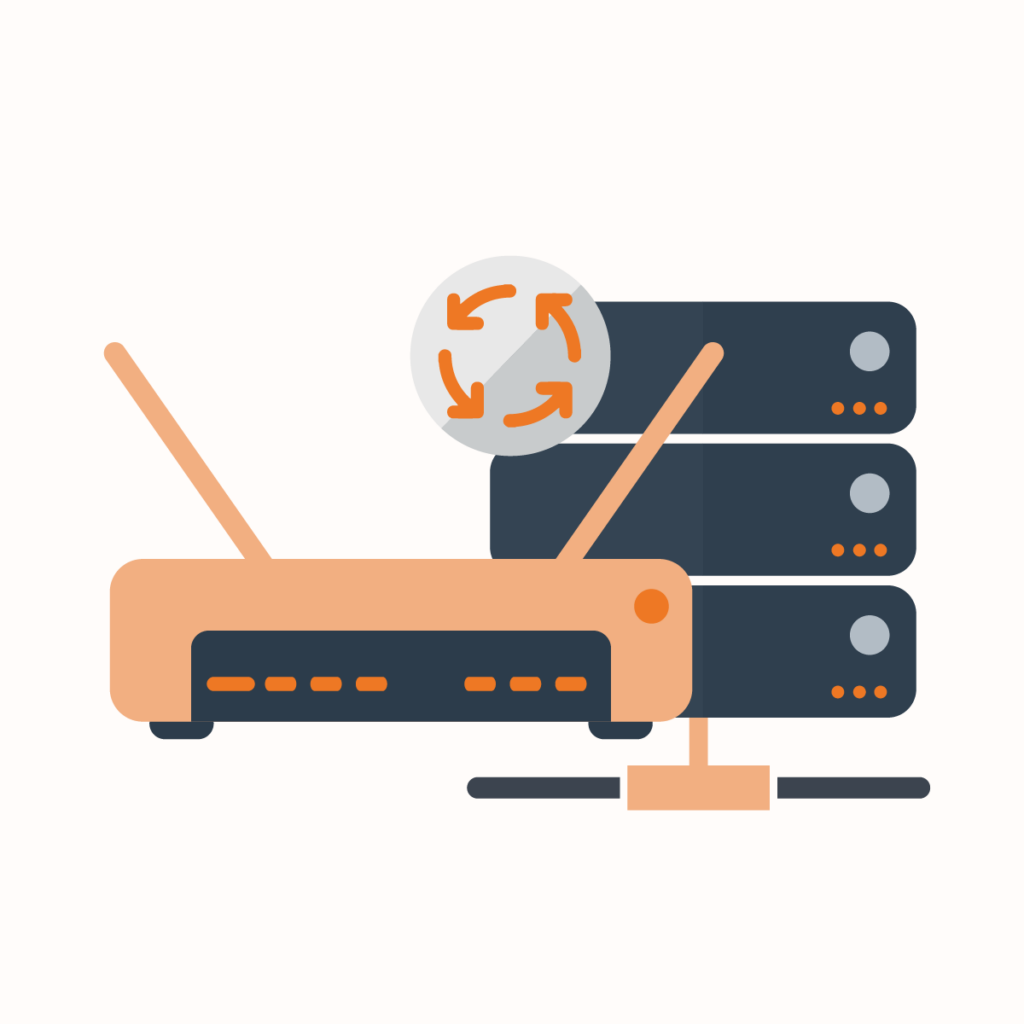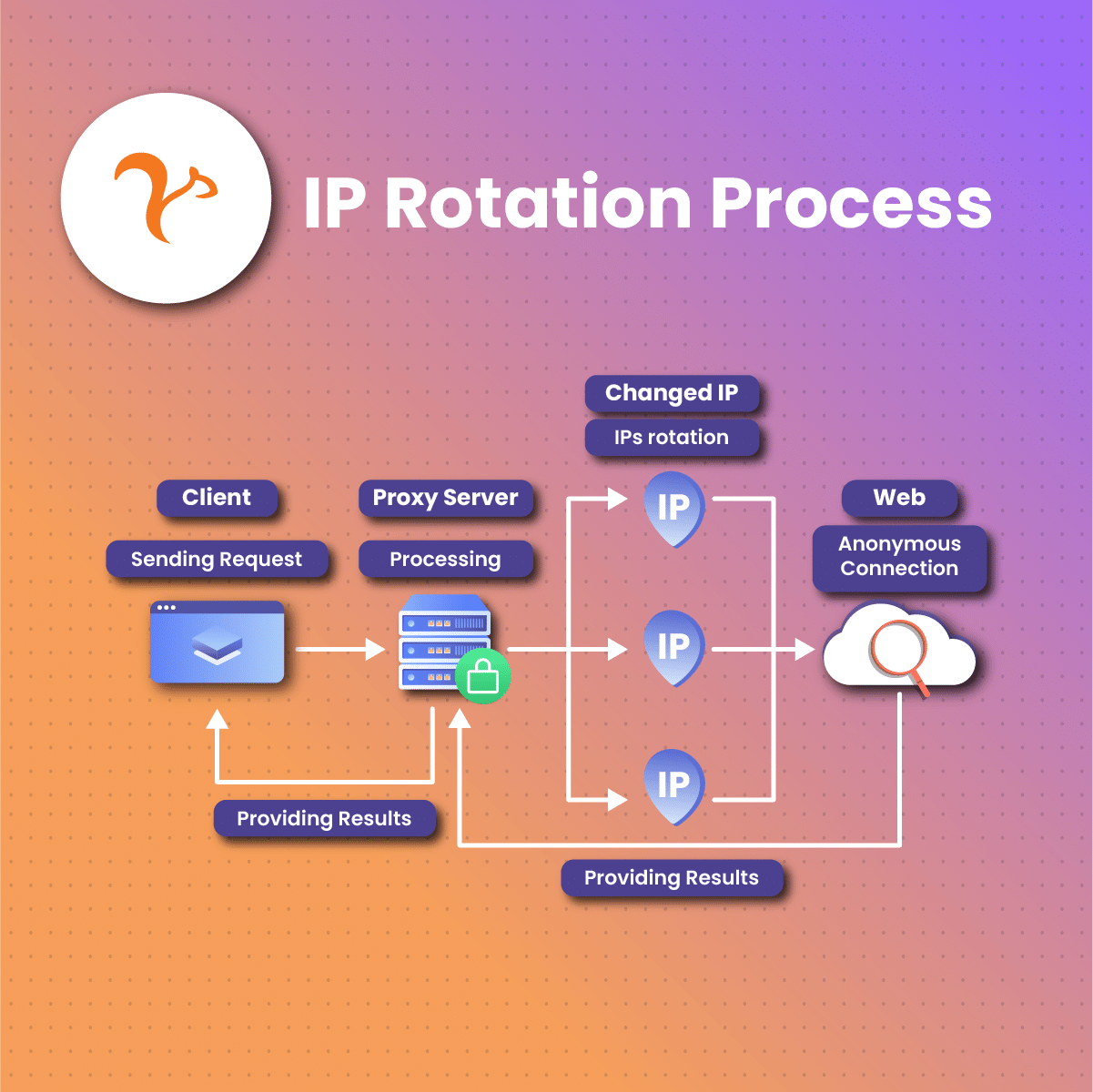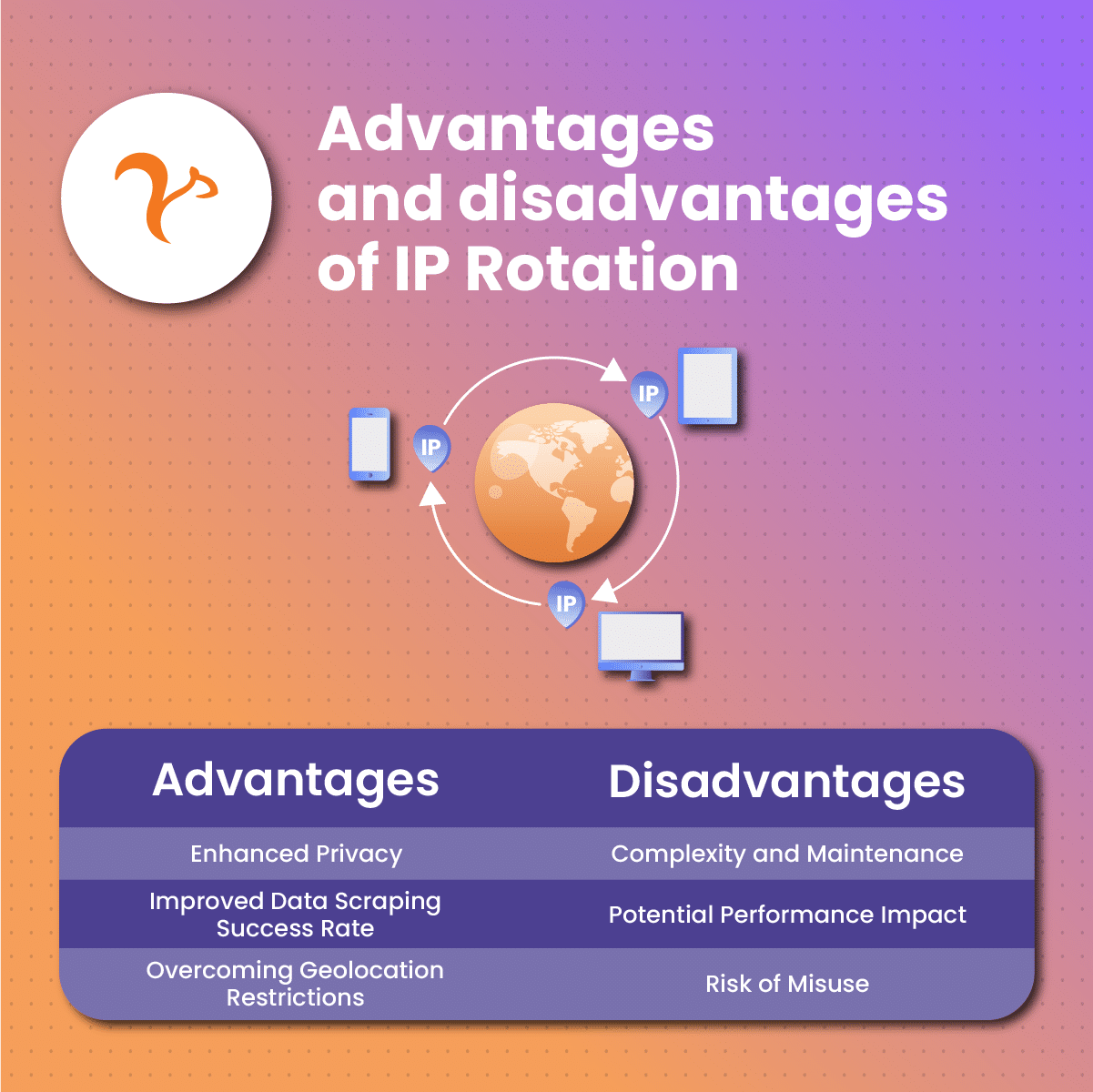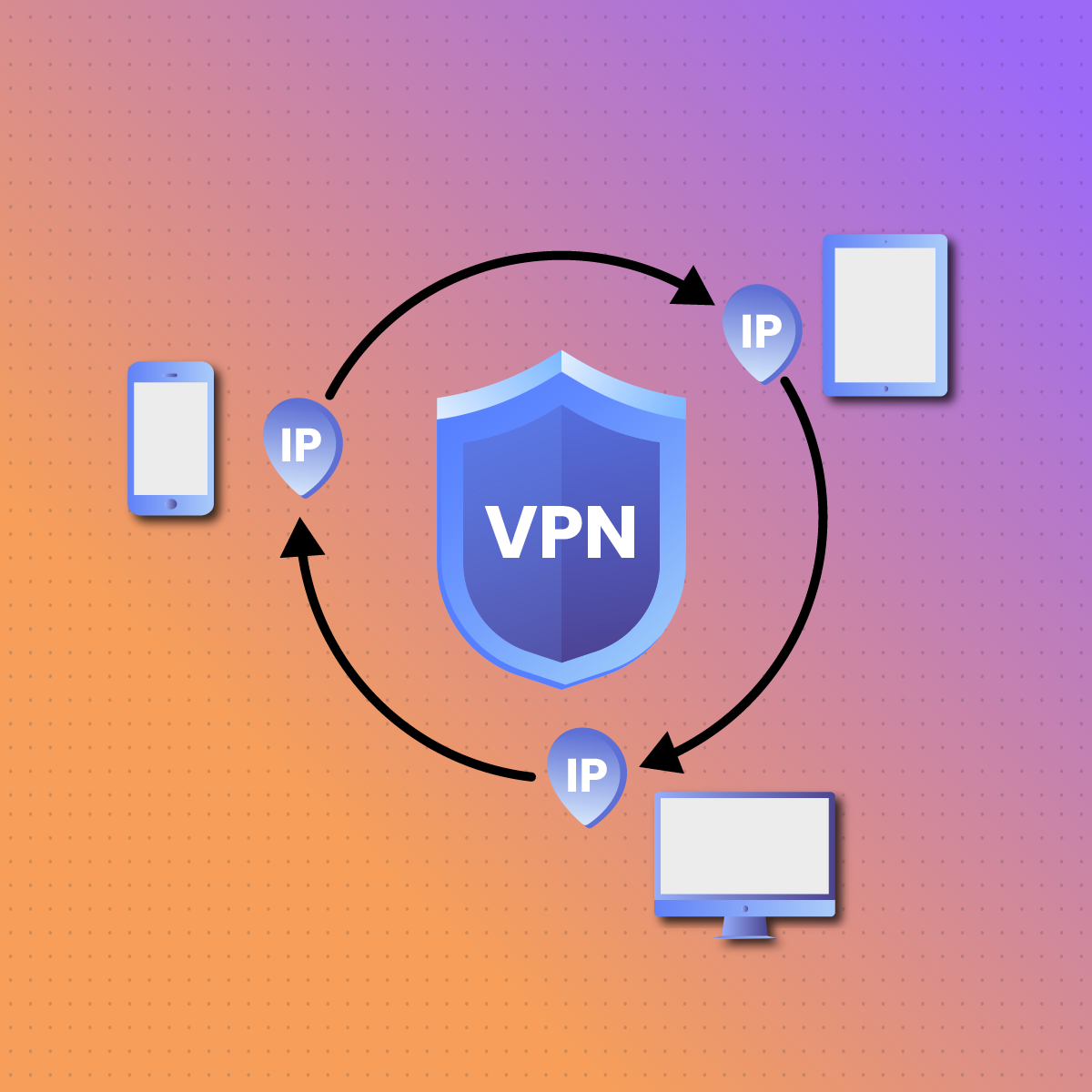All You Need to Know About IP Rotation: What Is It and How To Rotate an IP Address
When the internet burst onto the scene on New Year’s Day, 1983, no one could have predicted just how big this invention would be. Very few would have imagined that it would become a part of the majority of households on the planet and that terms such as IP rotation or rotating an IP address would become essential aspects of the internet for individuals as well as businesses.
With so many devices being online at the same time, certain issues began to emerge. One issue, in particular, is finding a way for the internet to differentiate between different computers, routers, and websites. This is where IP addresses come into play. These addresses have become as important as your own identification number or card.
However, there are times when the IP address on your device may not be ideal for what you need to do. If you are wondering whether there is a way to change that IP address, the answer is yes. It can be done through a process called IP rotation, and this article will look at everything there is to know about what it is and teach you how to rotate an IP address.
What is an IP Address?
Before we can learn about IP rotation or rotating an IP address, we should first learn what an IP address is. IP stands for Internet Protocol, and it is the unique group of characters used by the Internet to identify your device. It helps with location addressing and interface identification. Depending on the type of device you are using and where you are accessing the internet from, there are four types of IP addresses, which are dynamic, static, private, and public.
What Is IP Address Rotation?
Now, what is IP rotation? IP rotation is when you decide to change the IP address on your device at random or scheduled times. This can be done, for example, each time you log onto the internet, after a certain number of requests have been issued, or at predetermined intervals.
The process of rotating your IP address can be carried out by either a proxy service, VPN, or internet service provider. When done right, IP rotation will give you privacy while you surf the net, prevent you from being blocked from certain networks because of your location, or help balance network traffic.
In the realm of internet technology, where privacy concerns and data security take center stage, IP Address Rotation emerges as a strategic solution. It allows users and automated systems to mask their original IP addresses, thereby circumventing potential blocks, enhancing privacy, and accessing geo-restricted content. This technique is particularly beneficial for tasks such as web scraping, where it prevents detection by target websites and ensures uninterrupted data collection.
Is IP Address Rotation Worth Considering?
Benefits of Rotating Your IP Address
IP rotation is not something entry-level web users would be familiar with. In most cases, they can carry on surfing online, blissfully unaware that their device even has an IP address.
However, for more advanced operations, such as web crawling or web scraping, IP rotation is a very important tool used to prevent users from being blocked for making too many requests while trying to gather data. SEO firms and data intelligence companies are just a couple of examples of organizations that would not function without IP rotation.
As a regular internet user, IP rotation is a great tool to have that could make life easier for you in certain situations. The first time most people use IP rotation is when they are traveling abroad and need to access websites that are restricted to their home country. Rotating your IP address in this way will allow you to “trick” the internet into thinking you are in one location while you are actually thousands of miles away.
In other cases, you can use IP rotation to avoid being constantly bombarded by online ads, which will enhance your browsing experience. As the world becomes more reliant on internet technology, chances are that you will come across many instances where IP rotation could be an advantage.
Four Methods for IP Address Rotation
When it comes to implementing IP rotation, there are various options that you can consider. The following are the four most common methods:
- Burst IP Rotation
Devices are blocked from some websites after they exceed a certain number of connection requests, which is common when doing high-level tasks, such as data scrapping. In such cases, you can use the burst IP rotation method to give you a new IP address after every few connection requests. This will help you remain invisible to any programs that are guarding against multiple connections.
- Random IP Rotation
Another way of avoiding being blocked by websites is to avoid detection using the random IP rotation method. This type of rotation allows you to randomly switch between different IP addresses within your defined proxy pool.
- Specific IP Rotation
There are times when you require a lot more control over the IP address you are going to be issued according to a specific schedule. Here, you can use specific IP rotation to manually choose which IP address you will be using and at what time. If you want who/whatever is checking to think you are at a specific location, this is the method to choose.
- Pre-configured IP Rotation
When you need to constantly bypass bots that are trying to block you, it is not always practical to rotate the IP addresses yourself. You need a way to be able to change IP addresses even when you are not sitting in front of the computer. Using pre-configured IP rotation is a great way to do so.
How to Rotate IP Addresses
There is a big difference between knowing what IP rotation is and understanding how it works. In general, there are three main ways that you can choose if you want to do an IP rotation, and these are manually, programmatically, or using a proxy rotator.
If you take the manual route, it means you will have to rotate the IP address physically each time you need a change. This can be done in a variety of ways. One example is by accessing your Chrome settings on your web browser and configuring the proxy how you want it.
The other option, programmatic IP address rotation allows you to use various online tools, such as the Python Requests library to execute the proxy rotation. In this case, the program will simply do what you would have done had you decided to use manual IP rotation.
Lastly, you can use a proxy rotator, which will use a random IP rotation method to change the IP address. Using a dedicated proxy rotation service is the easiest way to get past ad blocks that are stopping you from web crawling. You can find a great proxy solution at NetNut.
Thinking of Rotating Your IP Address? Try This
- Depending on what you are trying to achieve with your IP rotation, there are many different ways of doing the rotation. Before going further, you should understand that each IP rotation method has its own pros and cons. You should, therefore, consider what you want to achieve before picking one.
Understandably, this might be overwhelming for some internet users, which is why NetNut is ready to assist with fast, reliable, and scalable proxy solutions. You can take a huge weight off your shoulders by letting the experts handle your IP address rotation.
In the meantime, you can consider the following:
Proxy Rotation
As mentioned before, you can use proxy rotation for your IP address rotation. If you go to NetNut, you will find a useful proxy tool that will allow you to assign new IP addresses to your device each time you connect to the internet. These IP addresses are selected from a proxy pool and are the preferred method for high-level tasks, such as data scrapping.
- Sticky Proxies
The basic functions of a sticky proxy are similar to what you would get if you use ordinary IP rotation. However, as the name suggests, sticky proxies are useful when you need to maintain the same IP address for a longer duration. When you plan on doing tasks that are likely to take a long time and do not want any disturbances from proxy rotations during that time, a sticky proxy is the way to go.
- Time-based Rotation
Simply put, time-based rotation is used when you want your IP addresses to be rotated at specific times according to a preset schedule. If you need to balance how you are using your IPs, then you can use a time-based rotation to ensure that you only rotate addresses every few minutes or hours, for example.
- Request-based Rotation
If you are doing work that makes a large number of requests to websites resulting in you being blocked regularly, you may want to consider request-based IP rotation. Here, your IP address will be automatically changed after a particular number of requests.
- Intelligent IP Rotation
There are times when you require IP rotation to be a little more intelligent in terms of scheduling its rotation intervals. This can be because you want your IP rotation to be in line with certain goals or targets you may have as an individual or organization. In such cases, intelligent IP address rotation will help you automatically rotate IPs according to a defined strategy calculated to minimize the chances that you get blocked from certain websites.
- VPN Rotation
Have you ever heard of a Virtual Private Network (VPN)? If you are using a VPN, it may offer the option of using scheduled IP rotation. The only downside of VPN rotation is that it may be a lot slower than proxy rotation. This is because VPNs generally can only rotate a single IP address at a time.
A Closer Look at Using Proxy Servers to Rotate IP Addresses
Using proxy servers to rotate your IP addresses, a process called proxy rotation, is one of the most common ways that you can consider. Using a proxy server, your device will be given a fresh IP address after every connection.
You will have an entry node to act as a static IP which is where the proxy server will be adding all the new IPs from the proxy pool. If efficient and private data gathering is what you are after, you can use any of the following options to rotate your IP address:
- IP Rotation Software
Using IP rotation software, you can switch to any address from a pool of proxy IPs while keeping your actual address secret. This software is specifically designed to carry out pre-defined IP address rotation according to pre-configured rules.
- IP Rotation Service
Individuals or companies looking for an alternative option to using IP rotation software may consider hiring an IP rotation service. Unlike IP rotation software, this service uses back-connect proxies to assign a new IP to the device
- DIY IP Rotation
If you know a lot about computers and IP addresses, you can choose the DIY IP rotation method. Here, you will need to manually change the settings on your device so that you can control the entire IP rotation process and manage your proxy servers. If you can handle the added complexity of DIY IP rotations, you will enjoy greater control and flexibility.
Four Main Reasons to Rotate Proxies
Changing IP addresses so often seems like a very complicated process, so why do some individuals and organizations consider it worth the effort? There are a variety of reasons why you might need to rotate proxies, but the most common are the following:
- Search Engine Optimization (SEO)
SEO is the buzzword among companies looking to extend their online presence and reach a larger pool of customers. Usually, it means hiring a professional company to do the legwork for you. Have you ever wondered how these companies gather the data they use when conducting SEO, such as which keywords to use in your content? Web crawling is one of the main ways, and for this, they need IP rotation to avoid being blocked.
- Better Privacy
If you want to remain anonymous while surfing the web, one of the best ways to protect your privacy is by using IP rotation. This is a great tool when you want to minimize the risk of being hacked, or you have some important information that needs protection.
- Improved Content Access
With proper IP rotation, no internet doors will be closed to you. You can access a wide range of location-specific content, even if you happen to be traveling around the world.
- Wider Ad. Distribution
When advertising products on a global scale, marketers have to be careful to ensure that they imitate viewers from different parts of the world correctly. IP rotation can be an essential tool in achieving this.
Common Uses for Rotating Proxies
The bottom line is that IP rotation is there to provide you with a lot more flexibility, privacy, security, and accessibility. How you choose to use it depends on what you need. However, the following are some of the common uses of rotating proxies:
- At its most basic form, IP rotation changes the user’s identity while they are online, effectively hiding them. This means you can use rotating proxies if you want to avoid being tracked while using the web.
- Certain corporations rely on web crawling and data scrapping, of which the biggest challenge is being constantly blocked. IP rotation offers an easy and effective solution to launch unlimited requests without being blocked or even detected.
- If certain restrictions have been put in place to block users based on location or requests, IP rotation offers a way to bypass these restrictions. This will, for example, allow you to access data that you would normally be denied access to by websites that block web crawling
IP Rotation Is a Breeze With NetNut
If you are looking for efficient, reliable, scalable, and cost-effective IP rotation services, NetNut has the ideal solution for you. Whatever your needs may be, you can choose from the following NetNut products:
- Datacenter Proxies – Fast and scalable US proxies with 99.99% uptime
- Mobile IPs – Over 250,000 mobile IPs to provide security, privacy, and bypassing of geo-restrictions while using your mobile device.
- Static Residential Proxies – Over 1 million undetectable static IPs with 24-hour availability.
- Rotating Residential Proxies – Over 30 million auto-rotating proxies for smooth web browsing
When you choose NetNut as your proxy provider, you get access to a dedicated account manager who will make sure all your needs are met, and that your web sessions run smoothly all the time. You can enjoy unlimited access to the entire web, without having to worry about geo-restrictions when you travel or being blocked because of too many requests.
The IPs provided by NetNut are available 24 hours a day, seven days a week, and can be kept indefinitely. This ensures a level of flexibility and unlimited concurrency that will be a great tool when you require uninterrupted web crawling or data scrapping. Whether you are an individual or a corporation, NetNut has an IP rotation solution for you.
Final Thought on Rotating An IP Address
Regardless of which of the many uses of IP rotation you require, it can be a very useful tool to have if you plan on traveling or doing some web crawling. At first glance, the process may seem intimidating, but thanks to service providers such as NetNut, you can gain access to this amazing tool without breaking a sweat.
The day is fast approaching when IP rotation is no longer reserved for technologically advanced web users but for everyone. You can take a look at the awesome proxy solutions that NetNut has, and choose the one that suits your needs.








